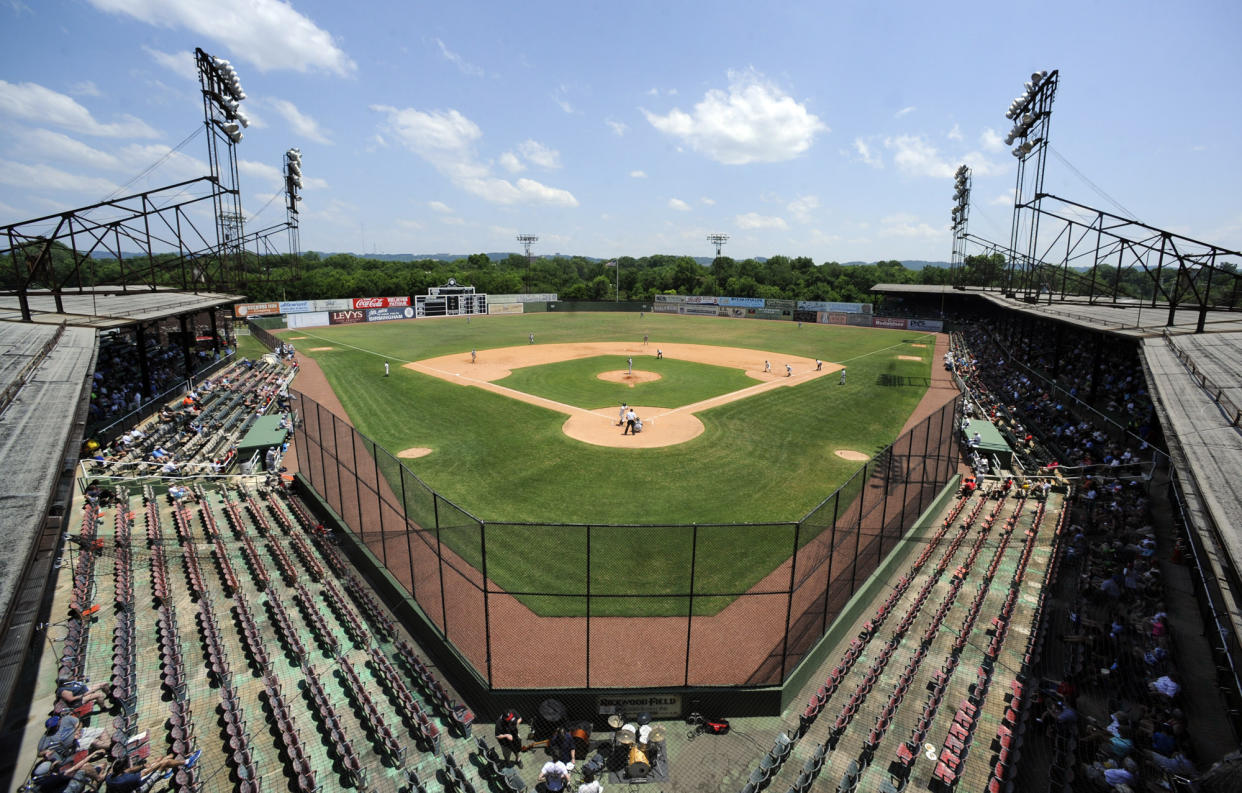Baseball Hall of Fame to use Negro Leagues' East-West All-Star Game format for legends exhibition

When the National Baseball Hall of Fame host its legends exhibition Memorial Day weekend, it'll utilize the Negro Leagues' East-West All-Star Game format.
The game will be played on May 25, 2024, at Doubleday Field in Cooperstown, New York. The news was made in an announcement Tuesday during the winter meetings.
The exhibition is the centerpiece of the annual Hall of Fame Classic weekend. At the end of Memorial Day weekend, a new exhibit, "The Souls of the Game: Voice of Black Baseball," will be unveiled to commemorate the history of Black baseball and the Hall's Black Baseball Initiative.
"The East-West All-Star Game was the annual showcase for the Negro Leagues, and we are privileged to be able to honor the legacy of those stars over Memorial Day Weekend in Cooperstown as part of the Hall of Fame's celebration of Black baseball," World Series champion CC Sabathia said in a statement. "As players, we are indebted to the pioneers who came before us, and recognizing the All-Stars of the Negro Leagues pays tribute not only to their playing ability but also to their courage and devotion to the game."
The Negro Leagues played its first East-West All-Star Game on Sept. 10, 1933, at Comiskey Park in Chicago, and the last one was held in 1962, before the league shuttered.
John Odell, a former curator for the Hall who died in July, came up with the idea to use the NL's East-West format. After that, the Hall simply needed to find players open to participating.
Sabathia, a Cy Young Award winner, and outfielder Chris Young will serve as captains for the star-studded lineups, while Hall of Famers Ken Griffey Jr. and Ozzie Smith will offer assistance. Josh Barfield, Tim Beckham, Prince Fielder, Curtis Granderson, Tony Gwynn Jr., Jerry Hairston Jr., Scott Hairston, Ryan Howard, Adam Jones and Dontrelle Willis are among those expected to appear. The Hairston brothers are the grandsons of former Negro Leaguer Sam Hairston, who primarily played for the Cincinnati/Indianapolis Clowns and was an All-Star in 1948.
"I think by seeing what we're doing, you can recognize how much the Hall thinks that's a significant part of the history of baseball in America," Hall of Fame president Josh Rawitch told ESPN. "One of the ... misperceptions that we often are trying to change is the [lack of recognition] that Black people have been playing baseball since baseball started."
This isn't the only game the Hall and MLB are holding to recognize the Negro Leagues and bring the history of the league to the present.
The day after Juneteenth — on June 20, 2024 — the St. Louis Cardinals and San Francisco Giants will play at Rickwood Field in Birmingham, Alabama. In addition to being the oldest professional ballpark in the country, the field used to be the home of the Negro Leagues' Birmingham Black Barons. The event will celebrate Birmingham native and Giants legend Willie Mays.
Another exciting bit of news for Negro Leagues advocates is that former players will now receive consideration for entry into the Hall. The era committee will take a closer look at players from before 1980, known as the "classic baseball era."
"This wasn't a sport that was started by white people and Black people picked it," Rawitch said. "Maybe it's gone in ebbs and flows in popularity, and I think that'll be part of the stories that we tell, too. But I think from our standpoint, it's imperative that we tell the history of all of baseball."
